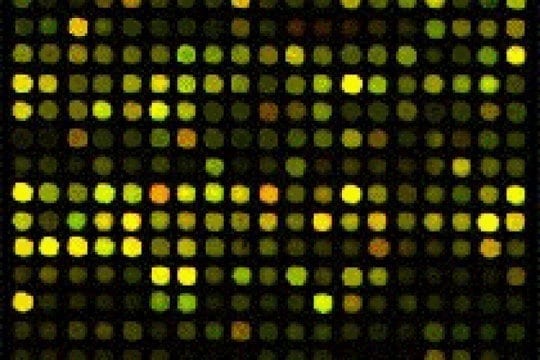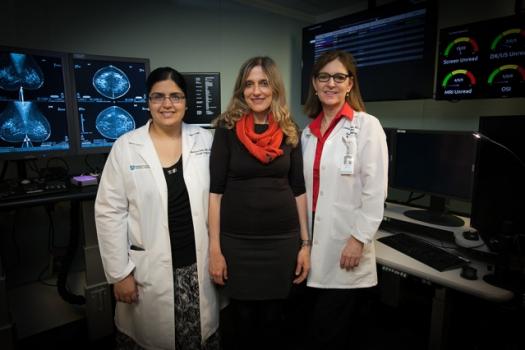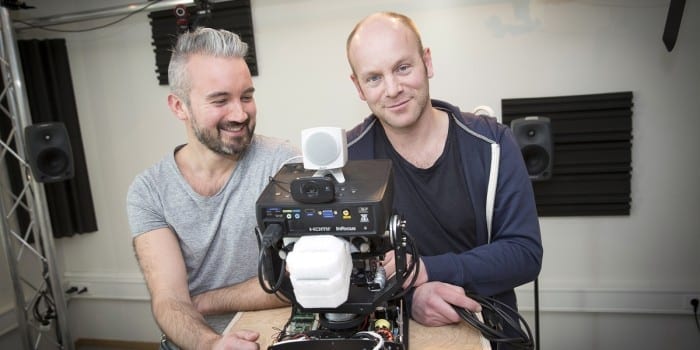
Credit: Medical Center, University of Freiburg
Researchers at the Department of Obstetrics and Gynecology of the Medical Center — University of Freiburg have developed an approach for detecting breast cancer by means of urine samples that is highly accurate
The method involves determining the concentration of molecules that regulate cell metabolism and that are often dysregulated in cancer cells. These molecules, referred to as microRNAs, enter into the urine over the blood. By determining the composition of microRNAs in the urine, the scientists succeeded in establishing with 91 percent accuracy whether a test subject was healthy or diseased.
The measurement was possible through the detection of only four microRNAs. If the effectiveness of the method is confirmed in further studies, it could serve in the future as a means of monitoring the success of treatment and potentially also of making an early diagnosis of breast cancer.
The Freiburg scientists published their findings in the journal BMC Cancer and have applied for a patent for the method.
About 1.7 million women suffer from breast cancer worldwide. It is the most common type of tumor in women. The disease claims more than 520 thousand lives each year. Up to now, doctors have made the diagnosis by mammography or ultrasound and confirmed it with tissue samples. However, these methods have been subject to recurring criticism due to radiation exposure, erroneous results, and the fact that they involve an invasive intervention.
Experimental test already highly accurate
Prof. Dr. Elmar Stickeler, medical director of Senology at the Department of Obstetrics and Gynecology and head of the Breast Center at the Medical Center — University of Freiburg, and his team have now developed a urine test capable of detecting tumors on the basis of changes in metabolism. The researchers measured the concentrations of nine microRNAs in the urine, short genetic sequences that regulate cell metabolism. Four of the nine molecules exhibited significant differences in concentration between healthy and diseased test subjects.
“We discovered that the microRNA profile in the urine is modified in a characteristic way in the urine of test subjects with breast cancer,” says Prof. Stickeler. “MicroRNAs should thus be suitable in principle for a breast cancer test.” With the help of the microRNA profiles, the researchers were able to determine with 91 percent accuracy whether a test subject was healthy or diseased. “Our method therefore led to highly accurate diagnoses,” says Prof. Stickeler.
The study included 24 healthy test subjects and 24 women who had recently been diagnosed with a breast tumor. The patients were in tumor stages 1, 2, or 3. It will now be necessary to conduct further studies to confirm the effectiveness of the method with larger groups of patients.
Read more: New method detects early breast cancer via urine
The Latest on: Breast Cancer
[google_news title=”” keyword=”Breast Cancer” num_posts=”10″ blurb_length=”0″ show_thumb=”left”]
via Google News
The Latest on: Breast Cancer
- Breast cancer mammogram screenings should start at age 40 instead of 50, says health task forceon April 30, 2024 at 10:51 am
Women should get mammograms every other year starting at age 40, according to updated recommendations from the U.S. Preventive Services Task Force (USPSTF).
- From Stigma To Support: Empowering Progress Despite Barriers In Breast Canceron April 30, 2024 at 4:00 am
Komen, one of the world's leading breast cancer organizations. Many years ago, there was—and still is, to an extent—a pervasive stigma around breast cancer. But in the 17 years since my own breast cancer diagnosis,
via Bing News










